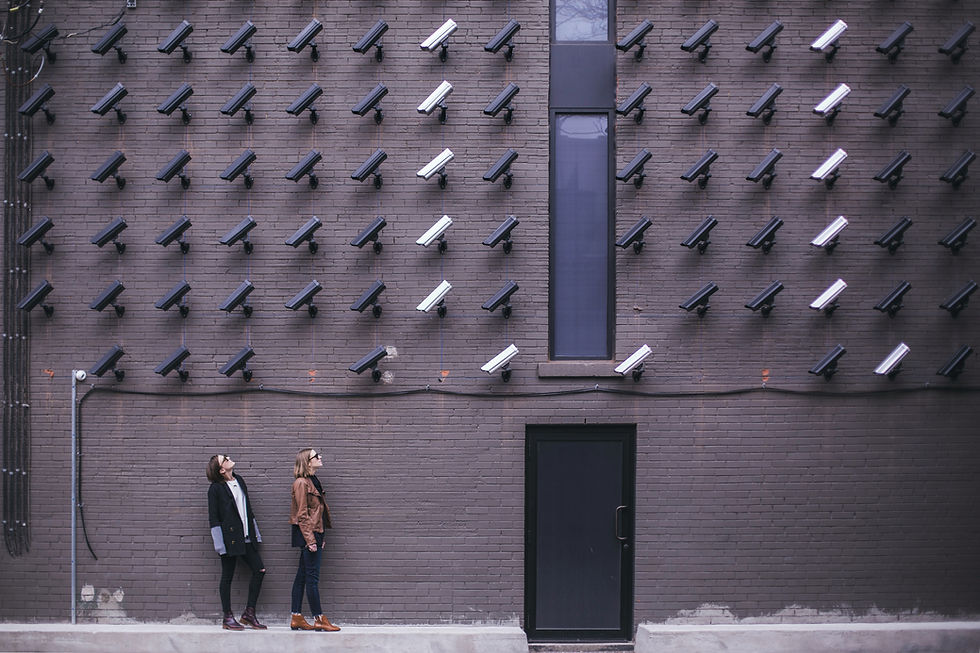Protecting Your Digital Privacy: Tips, Tricks and Best Practices
- Stephen Eiting
- Jan 24, 2023
- 2 min read

Digital privacy is a critical issue in today's digital age, as more and more of our personal information is being shared, stored, and accessed online. From our browsing history and search queries, to our online purchases and social media interactions, our digital lives are leaving a vast amount of data in the hands of companies, governments and malicious actors.
The importance of digital privacy can be seen in a variety of ways. For one, it helps protect our personal information from being accessed or misused by others. This can include sensitive information such as our financial data, personal contacts, and even our location. Additionally, digital privacy can also protect our freedom of speech and expression, allowing us to communicate and share ideas without fear of censorship or retaliation.
Another important aspect of digital privacy is the protection of our personal autonomy and self-determination. As more and more of our data is collected, analyzed and shared, we are at risk of having our behavior and decisions influenced by outside forces, without our knowledge or consent. This can include targeted advertising, manipulative algorithms and even government surveillance.
Furthermore, digital privacy is also becoming a matter of national security. As cyber threats continue to evolve, it is essential to protect sensitive information, both personal and organizational, from hackers and foreign adversaries.
With all of these considerations in mind, it is clear that digital privacy matters now more than ever. It is not just a personal or individual issue but a societal and global one. As we become more connected and dependent on technology, it is essential to be aware of the potential risks and take steps to protect ourselves and our personal information online. To further enhance your digital privacy, here are some tips and tricks to consider:
Use strong and unique passwords for all your online accounts, and enable two-factor authentication whenever possible.
Use a VPN (Virtual Private Network) when connecting to public Wi-Fi or accessing the internet on a shared device. A VPN encrypts your internet connection, making it more difficult for hackers to intercept your data.
Use privacy-focused browsers and search engines. Some browsers and search engines have built-in privacy features, such as tracking protection, that can help block third-party trackers and keep your browsing history private.
Be careful with the permissions you grant to apps on your mobile devices. Many apps ask for access to your contacts, location, and other personal information, which may not be necessary for the app to function. Review the permissions each app requests and only grant access to the information that is truly needed.
Keep your software and devices up to date. Software updates often include security patches, so it's important to keep your devices and apps up to date to protect against known vulnerabilities.
Be careful what you post online. Before you post anything online, think about whether it's something you'd be comfortable with a stranger seeing. And be mindful of what personal information you're sharing in your online profiles, such as your home address or phone number.
By following these tips and tricks, you can take control of your digital privacy and protect your personal information from potential threats. Remember to stay vigilant and review your privacy settings regularly to ensure your information is secure.






Hello Steve,
I just read your article on protecting digital privacy and I must say, it was a great read. You provided some valuable tips and tricks for keeping our personal information safe online. I especially appreciated the section on using a VPN to protect our internet connection and the information we share over it. It's important to be aware of the potential risks and take steps to mitigate them, especially in today's digital age where so much of our personal information is shared online.
Another tip you mentioned that stood out to me was the importance of using unique and complex passwords for each of our online accounts. I know I am guilty of using the same password fo…